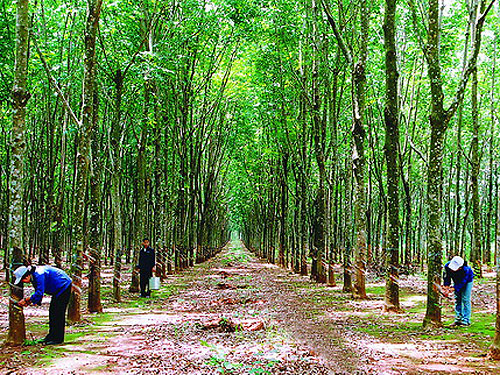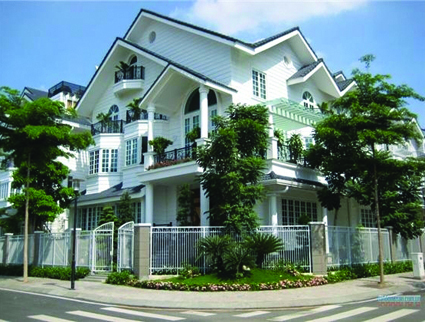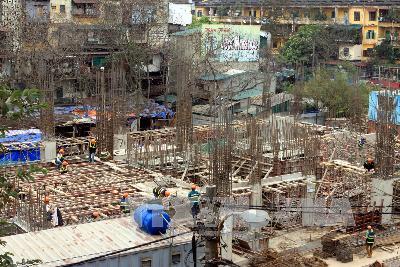The 1999 Penal Code would be revised in a way that it can better facilitate the full implementation of human rights and citizens rights enshrined in the 2013 Constitution.
This was highlighted by Minister of Justice Ha Hung Cuong at the 37th meeting of the XIIIth National Assembly Standing Committee on April 7.
The draft revised Code has a total of 427 articles arranged in 26 chapters. Compared to the 1999 version, the draft keeps 17 articles unchanged, adds 48, revises 361, and removes seven. It contains numerous significant new provisions concerning imposition of the death penalty, crimes infringing upon citizens’ rights, and extension of alternatives to imprisonment penalty.
Reducing the number of crimes subject to death penalty
Under the current Code, there are 22 crimes subject to capital punishment. The draft revised Code proposes removing seven crimes from the list of those subject to the death penalty. These crimes include: robbery; destroying important national security works or facilities; disobeying orders; surrendering to the enemy; undermining peace, provoking aggressive wars; crimes against the mankind; and war crimes.
At the same time, the draft splits the crime of illegally stockpiling, transporting, trafficking in or appropriating narcotics prescribed in Article 194 of the current Code into independent crimes of which only trafficking in narcotics would be subject to capital punishment.
In addition, the capital punishment would not be imposed on minors, pregnant women, mothers of children aged under three and elderly people aged 70 or above at the time of committing crimes or being tried.
Nguyen Van Hien, Chairman of the National Assembly’s Justice Committee, said most lawmakers agreed with the draft revised Code’s provisions as they not only reflected the State’s humanitarian approach, but would also help accelerate the ongoing judicial reform.
Meanwhile, National Assembly Vice Chairman Huynh Ngoc Son argued that death penalty should not be abolished for the crime of undermining peace or provoking aggressive war, crimes against the mankind, and war crimes as such crimes were regarded as the most serious ones.
While proposing the abolition of death penalty for the seven crimes mentioned above, the draft retains the possible imposition of the capital punishment on those who are convicted of corruption, bribery or embezzlement.
Addressing a recent seminar organized by the National Assembly’s Justice Committee, National Assembly Vice Chairman Uong Chu Luu said corruption has caused great discontent and anxiety in society and the Party and State have shown strong determination to combat it, so the death penalty should be maintained as the highest punishment for those found guilty of corruption.
Increasing crimes infringing upon citizens’ rights
The draft adds three new crimes, namely the crime infringing upon the right to vote at referenda organized by the State; falsifying referendum results; and infringing upon the freedom of speech, freedom of the press, the right of access to information and the right to demonstrate.
Specifically, those who obstruct citizens in the exercise of the freedom of speech and freedom of the press, the right of access to information, the right to demonstrate and other freedom and democracy rights would be subject to non-custodial reform for up to two years or imprisonment sentence of between three months and two years. If committing crimes in an organized manner, abusing positions or powers or causing serious consequences, offenders would face an imprisonment sentence of up to seven years.
The draft also proposes heavier penalties against six other crimes, including infringing upon others’ residences; infringing upon others’ privacy or correspondence safety; illegally forcing laborers, civil servants and public employees to leave their jobs; infringing upon citizens’ rights to assembly and association; infringing upon the freedom of belief and religion; and infringing upon the rights to complain and denounce.
Extending the application of non-jail sentences
Another new content of the draft revised Code that is highly appreciated by legal experts is a wider range of crimes eligible for non-jail sentences.
Accordingly, fine would be applied as the principal penalty to offenders of less serious crimes. However, as for cases involving violation of the economic management order and environment-related cases, fine might be imposed as the principal penalty even to offenders committing very serious crimes.
In case a convict who is subject to fine as the principal penalty for his crime fails to pay the fine within six months after the court judgment takes legal effect, he would be sentenced to imprisonment.
The draft also extends the scope of crimes subject to non-custodial reform to cover also unintentional serious crimes, rather than restricted to serious and less serious crimes as currently.-






